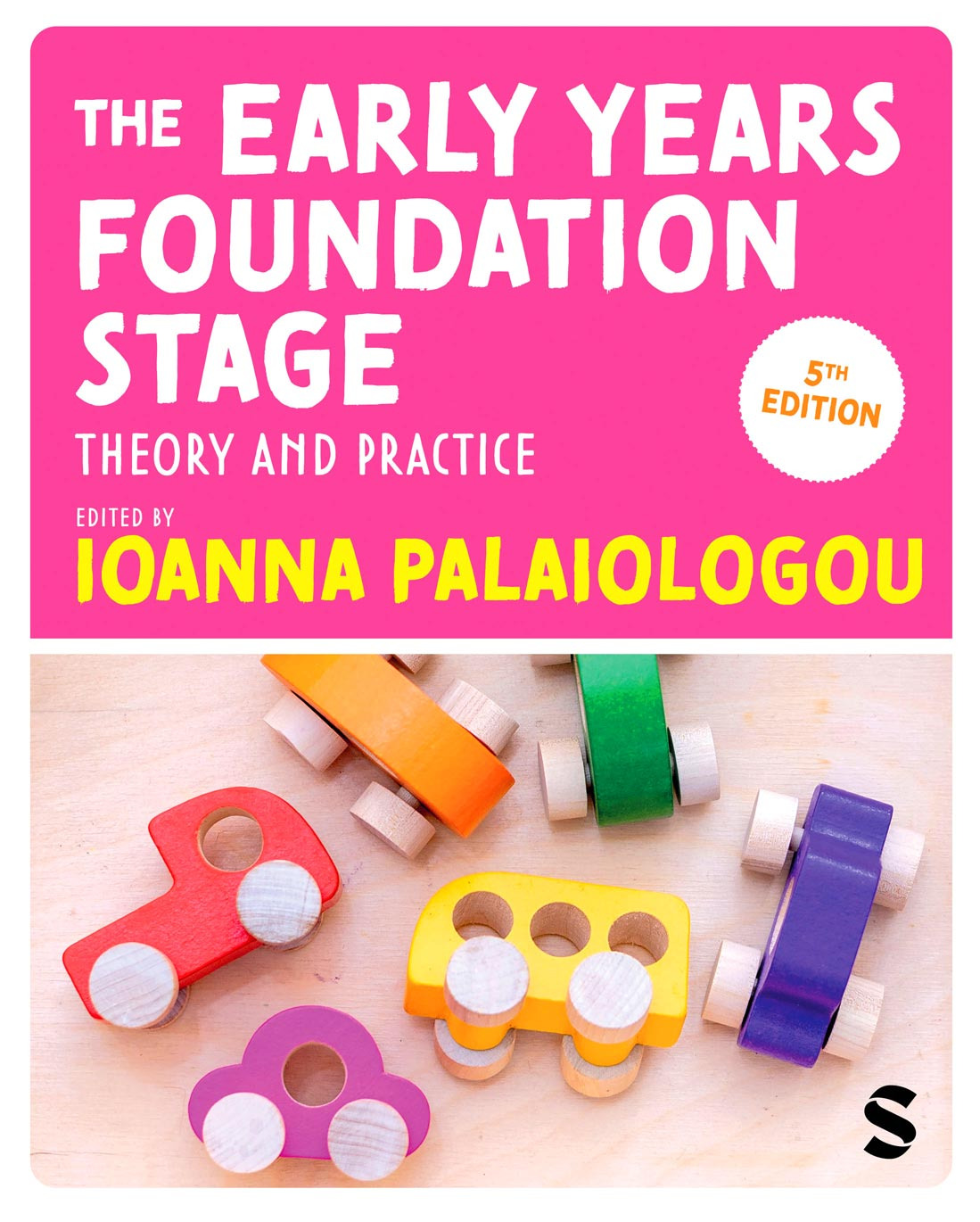You are in: Middle East
Change location
You are here
The Early Years Foundation Stage In Context
For children to have the best start in life, early years professionals must understand what the Early Years Foundation Stage (EYFS) is and why it's important. Author Ioanna Palaiologou charts the early development of the EEYFS, what has changed and how her new edition of The Early Years Foundation Stage: Theory and Practice better supports students.
Why create the EYFS?
Prior to the introduction of the EYFS, early childhood education was dominated by several dichotomies such as whether it was care or education, lack of resources and funding, lack of regulations and legislation where children under the age of five where “invisible”. In 2008 the EYFS was introduced to provide
“ a coherent and flexible approach to care and learning so that whatever setting parents choose, they can be confident that they will receive a quality experience that supports their development and learning” (DfES, 2007:7).
It intended to:
- break the cycle of deprivation,
- provide children a better start in life,
- regulate early childhood education and care,
- create a synergy between research and policy,
- be a play-based framework,
- emphasise the “unique” child,
- build strong relationships with parents and
- introduce accountability.
Although, at this stage criticism and scepticism was emerging, the implementation of the EYFS opened to public debate issues of what constitutes effective practice in the early childhood sector and how the optimum programme should be delivered. Since its first introduction in 2008, the EYFS has been amended several times with revisions such as changes to Early Learning Goals (ELGs) and greater emphasis on safety, assessment and school readiness. In July 2018 the EYFS underwent further change with emphasis on reducing workload for teachers and practitioners and improving outcomes for children, especially in language, literacy and mathematics with the expectations these changes would be implemented in 2020. However, due to the COVID-19 pandemic and the disruption it caused the implementation date was moved to September 2021.
The changes in the ELGs of the EYFS caused much scepticism, concern, criticism and opposition from the sector and academics. The key concerns evolved around the issues of how children will be assessed, school readiness and the appropriateness of the ELGs. The new version of the EYFS offers the impression that:
[it] places value on children in terms of their meeting future goals and standards and their learning outcomes. It assumes that children need to progress to the next stage of development, from “lesser” child to “better” child. The terms “development”, “developmental goals” or “learning goals” invoke a sense that children are not yet developed (whole/holistic) and thus need developing (“improving”), or that there is an existing, pre-determined place at which a child may arrive (presumably school)”
(Palaiologou, 2019: 238).
Despite these responses changes to the EYFS have started and are implemented from 1st September 2021. A revised edition was implemented in 2024.
While the current policy in which early childhood education is situated is both exciting and challenging, it remains imperative that practitioners rise to the challenge of critically reflecting upon how they position themselves to construct a play based - meaningful curriculum so young children can have “the best possible start in life”.
The EYFS: Theory and Practice

The revised fifth edition of The Early Years Foundation Stage has been fully updated to cover revised EYFS, revised Development Matters and policy shifts in the sector.
New to the book:
- Brand new chapters on the Rights of the Child, Children’s Development & Learning Theories and Planning.
- New content on diversity and inclusion throughout all chapters.
- New and updated case studies throughout the book, including international cases.
- Additions to chapters on children’s mental health, climate crisis and working with children post-pandemic.
This market-leading textbook is an essential guide for students, helping them to develop an understanding of the EYFS curriculum, and encouraging a critical view of the theory and policy behind it to strengthen their practice.
References:
DfES (Department for Education and Skills) (2007) Practice Guidance for the Early Years Foundation Stage: Setting the Standards for Learning, Development, and Care for Children from Birth to Five. Nottingham: DfES Publications.
Palaiologou, I. (2019) Child Observation: A Guide for Students of Early Childhood (4th edn). London: Sage.